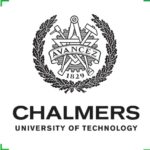Are you a PhD graduate eager to take the next leap in your academic journey? Look no further! European Molecular Biology Laboratory (EMBL), Germany invites online applications for prestigious Postdoctoral Fellowships across a wide range of research fields. Don’t miss out on this opportunity to propel your career forward.
Candidates interested in Postdoctoral Fellowships can check the details and may apply as soon as possible.
(01) Postdoctoral Fellowship Position
Postdoc summary/title:–Postdoctoral Fellow in Cancer Inequities – Cortés-Ciriano Group
We invite applications for a Postdoctoral Fellow position in the field of Cancer Inequities as part of the Cancer Grand Challenges team SAMBAI (funded by CRUK and the NIH – Award reference 1 OT2 CA297567). We are looking for an intrinsically motivated, talented, and hypothesis-driven individual with experience in analysing high-throughput sequencing data sets and a passion for cancer inequities research.
This position represents a unique opportunity for individuals looking to gain in-depth knowledge and expertise in the study of the multifactorial basis of cancer inequities in the context of the Cancer Grand Challenge team SAMBAI, which involves world-leading investigators in this field and offers unparalleled opportunities for career development and growth. Working as part of the genomics analysis team of SAMBAI, you will interact with numerous researchers in the UK, US and Africa. More information about team SAMBAI can be found here: https://cancergrandchallenges.org/teams/sambai
You will be expected to lead the development of scalable and creative computational solutions for sequencing data analysis with a strong focus on developing methods applicable in limited-resource settings and compatible with real-world clinical samples. Specifically, your project will involve developing computational methods for analysing a unique collection of thousands of short and long-read whole-genome sequencing data sets from breast, pancreatic and prostate tumours. A major aim of this role is to integrate social determinants of health, exposomics, germline genetics, tumour genomics and immune profiling data sets to decode the relative contribution and interactions of these factors to cancer inequities in underserved populations of African descent. Thus, it is essential that you are dedicated to lead your own project while also being a team player and willing to engage with our national and international collaborators.
Deadline : 28 July 2024
(02) Postdoctoral Fellowship Position
Postdoc summary/title:– Postdoctoral Fellow – Computational Analysis of Human Microbiome Data
We are seeking highly motivated computational biologists to join the research group of Peer Bork within the Structural and Computational Biology Unit as a postdoctoral fellow. This bioinformatics group works on a wide range of topics with a current focus on microbiome analysis in ecosystems like the human gut, soil and ocean.
Deadline : 28 July 2024
View more Postdoc Positions Click Here
(03) Postdoctoral Fellowship Position
Postdoc summary/title:– Postdoctoral Fellow in Structural Biology and Evolution of Chromatin
The successful candidate will work on a cutting-edge experimental research project in the structure-function analysis of chromatin in archaea. The goal of the project is to understand how eukaryotes evolved histone tails and tail-based regulatory mechanisms from an archaeal ancestor, and what role could the tails play in proto-eukaryotic chromatin. Practically, we will merge tail-less histones of a model archaeon with selected eukaryotic or Asgard histone tails in vitro and in vivo and investigate the structural and functional effects on a molecular level.
The project involves a combination of biochemistry, biophysics, and structural biology work. Structural part of the project will involve cryo-EM single particle analysis of nucleosomes, as well as FIB-milling of archaeal cells, and cryo electron tomography (cryo-ET) and subtomogram averaging of chromatin fibres.
Moreover, this project is a close collaboration with the laboratory of Naomichi Takemata (Kyoto University), and will involve regular communication and scientific exchange with the collaborators.
Deadline :31 July 2024
(04) Postdoctoral Fellowship Position
Postdoc summary/title:– Postdoctoral Fellow: Wavefront shaping microscopy and photoacoustics
The European Molecular Biology Laboratory (EMBL) is one of the highest ranked scientific research organizations in the world. The Headquarters Laboratory is located in Heidelberg (Germany) and the outstations are in Grenoble (France), Hamburg (Germany), Hinxton (UK), Barcelona (Spain) and Monterotondo (Italy).
The Prevedel group in Heidelberg is seeking a postdoc with an applied physics and/or engineering background to work on advanced imaging techniques for applications in biology and neuroscience. In particular, the candidate will work on the development of new optical instrumentation with a particular emphasis on optical wavefront shaping as well as photo-acoustic sensing. Additionally, the successful candidate will team-up with chemists as well as various biologists to apply the advances to current scientific questions.
This project is part of a recently funded Chan-Zuckerberg Initiative Deep-Tissue grant, and performed in close collaboration with the Deo group at EMBL, the Gigan/deAguiar groups in Paris and the Stiel lab in Munich. The successful candidate is expected to take a strong lead on his/her project and start to develop independent ideas. Our multi-disciplinary lab provides an innovative, dynamic and constructive working environment for this purpose. More information about the Prevedel group can be found here: www.prevedel.embl.de
Deadline : 31 July 2024
(05) Postdoctoral Fellowship Position
Postdoc summary/title:– Postdoctoral Fellow: Integrative cryo-electron tomography data mining
The Jan Kosinski group at EMBL Hamburg, in collaboration with the Julia Mahamid group at EMBL Heidelberg, seeks a Postdoctoral Fellow to work on computational analysis of biological cryo-electron tomography (cryo-ET) data. This position is part of the TransFORM consortium, funded by the prestigious ERC Synergy Grant, which aims to map the intricate workings of protein translation machinery in human cells using cutting-edge cryo-ET, mass spectrometry, and computational modeling of atomic structures.
Deadline : 19 August 2024
(06) Postdoctoral Fellowship Position
Postdoc summary/title:– Postdoctoral Fellow: AI-based integrative modeling of macromolecular complexes
Deadline : 19 August 2024
Connect with Us for Latest Job updates
(07) Postdoctoral Fellowship Position
Postdoc summary/title:– Postdoctoral Fellow – Systems Genetics and Precision Health
EMBL is Europe’s life sciences laboratory – an intergovernmental organisation with more than 110 independent research groups and service teams covering the spectrum of molecular biology. It operates across six sites in Heidelberg (headquarters), Barcelona, Cambridge, Grenoble, Hamburg and Rome. Our mission is to perform basic research in molecular biology; train scientists, students and visitors at all levels; offer vital services to scientists in the public and private sectors within the member states; develop new instruments and methods; and engage actively in technology transfer.
The Steinmetz group at EMBL Heidelberg is seeking an ambitious postdoctoral fellow with interest in cardiomyopathies and genome biology. We work on novel strategies to treat cardiomyopathies and to understand the underlying disease and drug mechanisms. Our approach is based on cutting-edge functional genomics assays and single-cell technologies in combination with complex 2D and 3D disease model systems. The successful candidate will be able to work within an established team of scientists, research technicians, and a strong network of collaborators from academia and industry
Deadline : 22 August 2024
(08) Postdoctoral Fellowship Position
Postdoc summary/title:– AMBER Postdoctoral Fellowship: A novel optical microscopy platform for cross scale imaging of mammalian and human fertility
Assisted reproductive technologies (ART) are becoming increasingly important for reproductive choices in our societies due to advancing age and increasing lifestyle diversity of new parents. Our understanding of the processes that limit fertility has advanced tremendously, driven by new optical imaging technologies such as light sheet fluorescence microscopy that can visualize such processes in oocytes and early embryos in mammalian laboratory models at the molecular and cellular scale. However, translating this progress to the fertility clinic to better understand, diagnose and treat the causes of human infertility has been precluded by the lack of technologies that would allow to cross from the molecular and cellular scale that is offered by advanced fluorescence technologies available in research infrastructures, to the physiological scale in the clinic, which must employ label-free imaging methods that do not perturb the fragile biological development at the beginning of life.
Our project aims to bridge the length scales of biology and medicine by developing a novel hybrid microscopy platform that uses the molecular specificity of fluorescence microscopy to computationally revolutionize the information content of label-free approaches. In an interdisciplinary collaboration with the EMBL Imaging Centre and research group of Robert Prevedel, as well as the University Hospital of Heidelberg, we will combine high-resolution fluorescence lightsheet with label-free optical coherence and Brillouin microscopies, which provide advanced morphological and mechanical features of the embryos, respectively. This multimodal data can then be used to train artificial intelligence (AI)-based models to recognize molecular and cellular changes from label-free images only. In this way, we will create a high-resolution cross scale imaging platform that has the potential to close the gap between basic and clinical research by bringing the molecular insights from the research laboratory to the fertility clinic and visualize the currently hidden processes associated with infertility.
Deadline :6 September 2024
About The European Molecular Biology Laboratory (EMBL), Germany – Official Website
The European Molecular Biology Laboratory (EMBL) is a molecular biology research institution supported by 27 member states, two prospect states, and one associate member state. EMBL was created in 1974 and is an intergovernmental organization funded by public research money from its member states. Research at EMBL is conducted by approximately 85 independent groups covering the spectrum of molecular biology. The list of independent groups at EMBL can be found at www.embl.org. The Laboratory operates from six sites: the main laboratory in Heidelberg, and sites in Hinxton (the European Bioinformatics Institute (EBI), in England), Grenoble (France), Hamburg (Germany), Rome (Italy) and Barcelona (Spain). EMBL groups and laboratories perform basic research in molecular biology and molecular medicine as well as train scientists, students, and visitors. The organization aids in the development of services, new instruments and methods, and technology in its member states. Israel is the only full member state located outside Europe.
Disclaimer: We try to ensure that the information we post on PhdNest.com is accurate. However, despite our best efforts, some of the content may contain errors. You can trust us, but please conduct your own checks too.
Related Posts
- 21 Postdoctoral Fellowship at Chalmers University of Technology, Gothenburg, Sweden
- 14 Postdoctoral Fellowship at Lund University, Scania, Sweden
- 10 Postdoctoral Fellowship at Umea University, Sweden
- 07 Postdoctoral Fellowship at Stockholm University, Sweden
- 21 Postdoctoral Fellowship at Uppsala University, Sweden
- 24 Postdoctoral Fellowship at University of Manchester, England
- 06 Postdoctoral Fellowship at European Molecular Biology Laboratory (EMBL), Germany
- 15 Postdoctoral Fellowship at University of Amsterdam, Netherlands
- 13 Postdoctoral Fellowship at University of Nottingham, England
- 24 Postdoctoral Fellowship at Technical University of Munich, Germany
- 05 Postdoctoral Fellowship at University of Queensland, Australia
- 24 Postdoctoral Fellowship at Oak Ridge National Laboratory, United States













